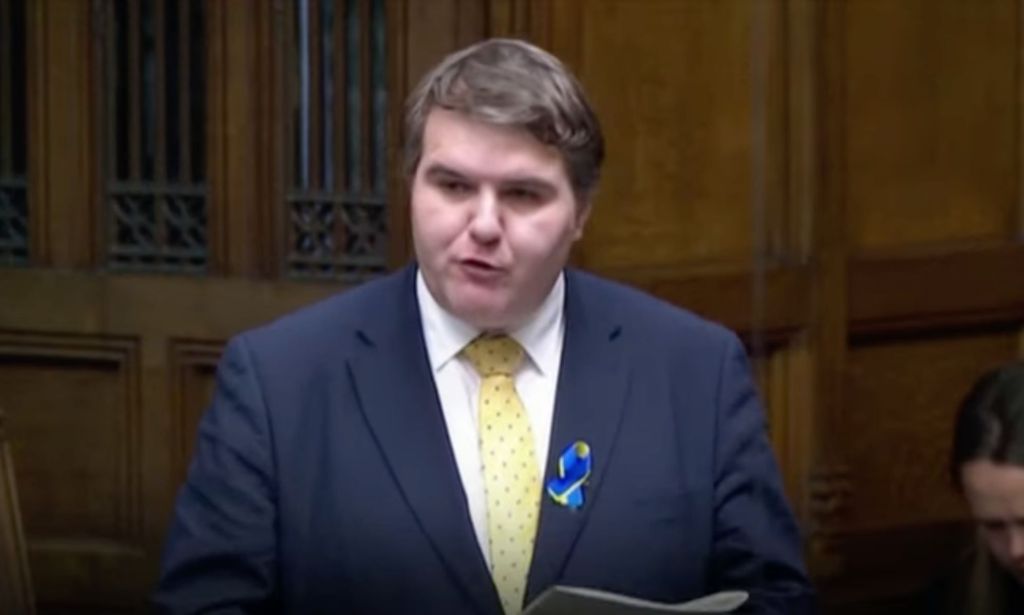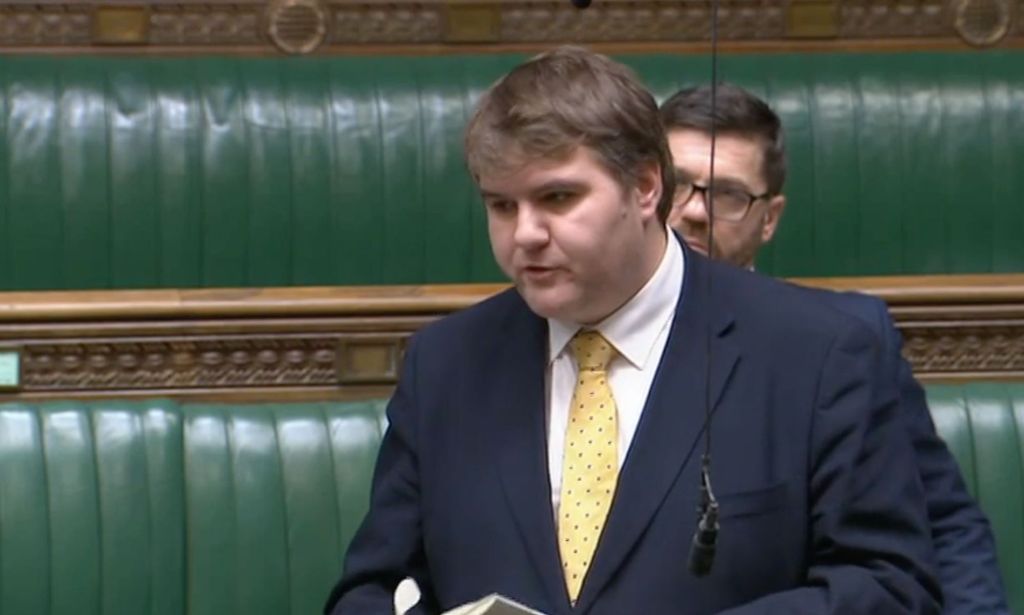Trans Tory MP Jamie Wallis calls for ‘swift action’ on gender recognition debacle

Jamie Wallis said there is “greater clarity on the movement of a packet of beef around the UK than there is for a trans person with a GRC” (Gender Recognition Certificate). (Getty)
Trans Tory MP Jamie Wallis called for ‘swift action’ to bring “peace of mind to trans people” after the UK government blocked Scotland’s landmark gender recognition bill.
The UK government set out their precise reasons for attempting to veto the Gender Recognition Reform (Scotland) bill (GRR) on Tuesday (17 January) after Scottish secretary Alister Jack addressed the House of Commons.
Jack used Section 35 of the Scotland Act to prevent the bill from going into law – an unprecedented move – over concerns for “single-sex” spaces and “equal pay” protections.
UK ministers took to the House of Commons to share their support for the gender reform bill, and there was invariably a lot of anti-trans rhetoric flying around.
Wallis, who came out as trans in 2022 and still uses he/him pronouns, released a lengthy statement online condemning the “toxic” debates surrounding trans and non-binary rights in the UK.
The MP for Bridgend reflected on how he spoke then about the need for people to engage “more constructively when discussing such issues because of the upset and anxiety” such discussions “can cause the trans community”.
“Since that time I have been blessed in making friends with many people who are members of, or closely connected to, the trans community,” Wallis said, in an statement released on social media by The Guardian‘s Aubrey Allegretti.
Wallis continued: “It has been one of the most enriching periods of my life where I have encountered some of the most friendly, kind and lovely people one could ever hope to meet.
“And often it is these very people who are experiencing hardship and faced with immeasurable challenges as they try to live their lives in a society which often feels is ever-increasing in hostility.”

Wallis described how being trans is to “accept that life will always be at least just a little bit more difficult” whether it is “family members and friends who no longer welcome us” to the difficulties accessing gender-affirming healthcare through the NHS.
“We accept that our existence will be viewed by some as an imposition – and that their right to a voice and their right to be heard necessitates us enduring open, endless debates about our legitimacy and our right to exist,” Wallis wrote.
Despite such a “tough” landscape, Jamie Wallis shared how many people he met displayed “remarkable patience and tolerance”.
He urged his fellow parliamentarians to take swift, collaborative action to “bring clarity and peace of mind” to the trans community after the UK government’s intervention.
The UK government announced on Monday (16 January) it would block the GRR bill from passing just weeks after the landmark legislation’s 86-39 vote victory.
The Scottish secretary told the Commons he hadn’t “taken this decision lightly”, but the government believed the bill would have a “serious adverse impact among other things on the operation of the Equality Act 2010”.
The GRR bill would make it easier for trans people to apply for a Gender Recognition Certificate (GRC) and update the gender listed on their birth certificates.
It would also remove the requirement for a medical diagnosis of gender dysphoria, lower the age for applications from 18 to 16 and reduce the time a trans person must live as their acquired gender.
In an unprecedented move, the UK government will use a Section 35 order under the Scotland Act to prevent the Scottish bill from becoming law because Jack was “concerned that this legislation would have an adverse impact on the operation of Great Britain-wide equalities legislation”.

However, Jamie Wallis said the situation risked “exposing all of us as ridiculous” and called for collaborative action among politicians.
“We now live in a country where there is greater clarity on the movement of a packet of beef around the UK than there is for a trans person with a GRC,” Wallis said.
He continued: “This situation risks exposing all of us as ridiculous.
“I urge parliamentarians everywhere to act swiftly and collaboratively – including those in devolved administrations – to bring clarity and peace of mind to trans people on how they go about living and thriving in His Majesty’s United Kingdom.

